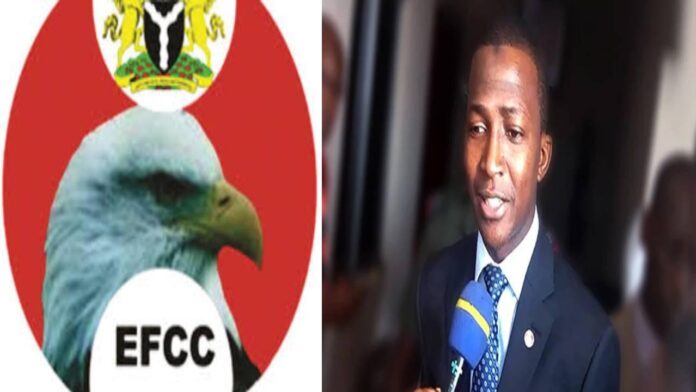Reform helps EFCC as well as personnel training and government backing
By Jeph Ajobaju, Chief Copy Editor
Up to 3,615 convictions have been secured by the Economic and Financial Crimes Commission (EFCC) this year facilitated by institutional reform, training of personnel, and support from the higher corridors of power.
EFCC Chairman Abdulrasheed Bawa made the disclosure at the Inter-Agency Task Team programme to mark 20 years of the United Nations Convention against Corruption (UNCAC) in Abuja.
“In the last eighteen months, we developed a Standard Operational Procedure for all the sixteen departments and specialised wings to enable staff to reduce the use of discretion which has helped us to get the best out of our workforce,” he said.
“I will like to mention here that the last report that I got in terms of the number of convictions now is very scary. As of the 5th of December, 2022, it was 3,615 convictions.”
Bawa explained the EFCC is working more on prevention and will use public engagements to actualise its mandate.
He named the tools to include reform of the Special Control Unit Against Money Laundering (SCUML), now domiciled in the EFCC, which has improved control and oversight of non-financial businesses and professions.
__________________________________________________________________
Related articles:
Idris coughs out N30b for EFCC from alleged N170b heist
EFCC makes highest funds recovery in Lagos, Abuja
HURIWA asks EFCC to arrest Ahmed over budget padding
__________________________________________________________________
Robust institution and legal frameworks to fight graft
United Nations Office on Drugs and Crime (UNODC) Country Representative Oliver Stolpe said Nigeria has one of the most robust institutional and legal frameworks to fight corruption worldwide, per Nairametrics.
In his view, the country is gradually translating its formidable anti-corruption investment into reducing the levels of corruption, as shown by recent studies.
“The reports we are launching today should give us a hint on what anti-corruption agencies can do more in their respective positions while the civil society representatives will also share their perspective on what they can expect from these leaders and how to work together to achieve greater results.
“So our aim here today is to identify what we can do differently to reap greater benefits from Nigeria`s anti-corruption investments,” Stolpe said.














